
Do you have what you need to make your garden grow?


Garden Center
Store Hours
Mon-Sat:
6:00am - 9:00pm
Sun:
8:00am - 8:00pm
Curbside:
09:00am - 6:00pm
Location
Popular at Your Garden Center
Trending Garden Supplies in May
Trending Live Plants
Garden Project Calculators
;Resize=(703,395.44))
Grass Seed Calculator
When you're ready to seed your lawn, our calculator helps you estimate the amount of grass seed you'll need to get the job done.
;Resize=(703,395.44))
Mulch Calculator
Enter your preferred material, the square footage and mulch depth of the coverage space for accurate results.
;Resize=(703,395.44))
Fencing Calculator
We'll calculate the amount of fencing you should purchase based on your property needs.
Shop Outdoor and Garden Brands
Frequently Asked Questions About Gardening
How do I check my USDA planting zone?
Check the USDA plant hardiness zone map, as planting zones have shifted slightly through the years. Planting zones with higher numbers can plant earlier in the year. Increase your odds of successful gardening by choosing plants that are meant for your zone.
What does direct sow mean?
If the ground isn't frozen solid and the soil isn't cold, consider planting your fruit, flower, or veggie seeds directly into your garden. This is called the "direct sow" method. Plant after the threat of frost is gone for the season, as seedlings and sprouts can't weather those conditions. You can also start your seeds indoors if you'd like. Consult your seed packet for when and how to sow seeds.
Do you carry organic seeds and plants?
Yes, we've got a variety of organic options, including organic veggie seeds and fruit seeds, as well as organic flower and herb seeds that are subject to availability. We also carry the organic fertilizer to feed your plants and the organic soil to plant them in.
Should I harden off my seedlings before planting them outside?
Yes, if you raised plants indoors from seeds in your own plant nursery, harden them first before you transplant them. Hardening is the process of getting them used to the great outdoors. It slows their growth until they're strong and ready to take off during a spring warm front. Hardening also makes your plants more resilient to a sudden cold snap. Read your seed packets or speak to a garden center associate for more information.
How do I plant a transplant or baby plant?
Squeeze the plastic around the plant to loosen the soil. Gently coax your transplant and the surrounding clod of dirt out into the palm of your hand, then place it into the hole you dug for it. Make sure the top of your transplant's soil is even with the garden soil, and carefully press the earth into place. Avoid leaving the plant as an island in a puddle of water, and don't tamp down the ground too tightly. Your plant baby needs to breathe.
Should I use peat moss starters or coir starters?
Seed starters, full of nutrients in pots or pellets, work for new and experienced gardeners alike. You don't have to use these starters if you're planting in soil, but you may want to. Starting seeds in peat pots works best for delicately rooted plants like carrots and beets, as well as flowers that need acidic soil. Some people prefer coir starters instead, as they have a neutral pH. Check what type of soil your plants need to help narrow it down, and chat with a garden center associate if you need more info.
Garden Project Ideas
The Home Depot Garden Center at W Des Moines
Set Up For Springtime
It's time to start thinking of spring. Clean the shed and sweep out the gazebo to prepare for fragrant breezes, warmer temperatures, and sprouts poking up out of the ground. Planting seeds indoors with grow lights means you'll be ready to transplant spring annuals and young veggie plants when the frosts are through and the ground thaws. You might even want to sow seeds directly into the earth. What better way to start than by exploring your favorite local plant nursery?
Plant Hardiness Zones Explained
The first thing you should know when planting vegetables, spring flowers, and other seeds is your planting zone. Every location in the U.S. and its territories is sorted by climate. Find your zone on the USDA zone map and learn when to plant seeds.
For example, you could transplant bell peppers outdoors in mid-March in Zone 10, but not until the end of May in Zone 4. The plants that'll thrive in your area are in your zone — plus all the zones numbered less than that. In other words, a Zone 5 garden can support plants listed as Zones 1–5. The timeframe to direct sow outdoors in your garden is often around a month later than the indoor start date. Be sure to read your seed packet for details. If you start seeds a little later than recommended, it's not ideal, but it should even out as time passes.
Gardening in Your Growing Zone
Much of the Great Plains and Upper Midwest is in Zones 3 through 5. Your best bets for veggies will be root vegetables like beets and carrots, leafy greens including lettuce, and cruciferous veggies like cabbage and kale. You can try squash, too. If you plant outside, prepare to cover outdoor sprouts when late frost is forecast. Planting dates are similar to Zone 4, that is to say, the target is mid-March through May 1st, depending on whether you're starting your seeds indoors or directly sowing them into your garden.
The state of Kansas and slightly north of the state line is in Zone 6, so planting can begin earlier there than farther north. The outdoor growing season doesn't kick off until mid-March or even April, although you can start some veggies by seed halfway through February. Tomatoes, peppers, cucumbers, squash, onions, and other classic garden crops will thrive in this region, and most of them can get an early jump on growing indoors before spring really moves in.
Start Seeds Indoors
Grow your garden from seeds by starting them indoors in your own plant nursery. We've got all the seed starter supplies you'll need. For best results, you'll want warming lights or a warming mat to go with your seed tray or planters. If you're planting a larger garden, use seed trays — like the ones you see sprouts in at your W Des Moines Garden Center — to stay organized and plant tiny soil plugs when the time comes. You can also use pots with seed starter mix and potting soil.
Measure your finger to use it as a ruler. In general, you'll plant 3–5 seeds, then press them into the soil to the depth you need with your finger. Mark where you planted the seeds with a toothpick or plant tag. Otherwise, it'll be a surprise when the sprouts push out of the soil.
Sprouts
When your seeds have sprouted but aren't ready to go outside yet, you can still prepare them for outdoor life. These inch-tall micro-seedlings are fragile but resilient. Seedlings certainly don't get all this pampering in nature, so they can handle more than you think. However, don't go overboard, as your sprouts are still babies. You can even use an oscillating fan on low to mimic the wind and strengthen their stems.
Harden Your Seedlings
Make sure to harden off your seedlings once they're a few inches tall. This process of gradually introducing them to the outdoors makes them stronger in the long run. Hardening means you're less likely to lose your growing garden during a sudden cold snap.
Transplant Young Plants Into Their New Homes
By now, your plants have 3 or 4 true leaves — they'll look different from the miniature seedling leaves. When you're not expecting soaking rain, and the ground is warm, look into transplanting your big sprouts into their new outdoor home. These large seedlings that are ready to be planted can also be called "transplants" or "starts." In cases where you directly planted into the ground, you may still want to shuffle plants around for the best sun and spacing. That's also a transplant situation, as is repotting plants into larger pots.
Protect Your Garden With Mulch
Finish it off with mulch and compost. Mulch keeps your soil moist and controls weeds. Compost enriches the soil so your garden can grow even better. It may help foster larger and stronger plants that bear more flowers and fruit. Compost and mulch can be DIY creations, but you can also purchase them in-store. The next time you're looking for "mulch near me," stop by the Garden Center to get the perfect amount.
Greet the Spring
Don't miss a minute of growing season. Prepare to fertilize your lawn, plan your garden and landscaping, and browse The Home Depot nursery to find inspiration on what to plant when the weather warms. For those without lawns, consider adding an outdoor rug, artificial grass, or a pellet grill to your patio or balcony. Shop for the fertilizer, soil, and seeds you need in the aisles of your W Des Moines Garden Center, online, or on our mobile app. Let's get growing together.
Nearby Stores
Find Another Store
10850 Plum Drive
Urbandale, IA 50322
3.54 mi
Mon-Sat: 6:00am - 9:00pm
Sun: 8:00am - 8:00pm
4900 Se 14th St
Des Moines, IA 50320
9.11 mi
Mon-Sat: 6:00am - 9:00pm
Sun: 8:00am - 8:00pm
2335 Se Delaware Ave
Ankeny, IA 50021
11.89 mi
Mon-Sat: 6:00am - 9:00pm
Sun: 8:00am - 8:00pm
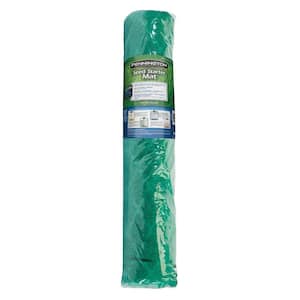
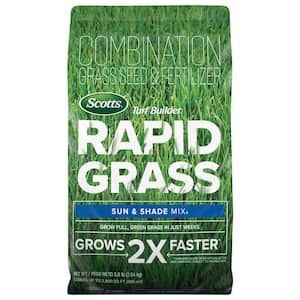
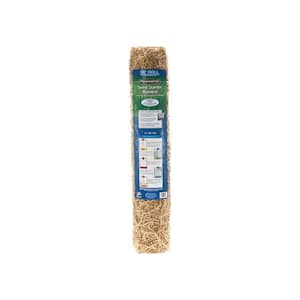
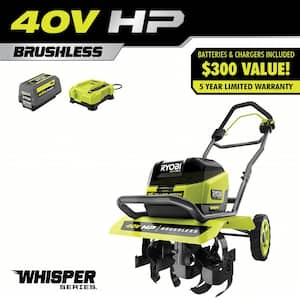
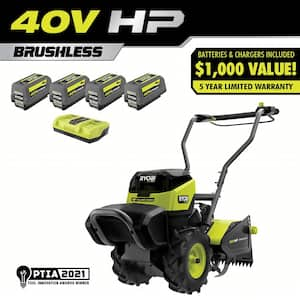
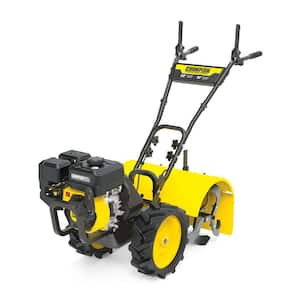
)
)
/17_514245_S_012_Product%20Image%20(square).jpg?im=Resize=(300,300))
;Resize=(300,300))
)
)
)
)
)
/2023_P2_Rain_Barrels_Product%20Image%20(square).jpg?im=Resize=(300,300))
)
;Resize=(300,300))
;Resize=(300,300))
;Resize=(300,300))
/12_SOIL_B_0420_Social%20media%20(square).jpg?im=Resize=(300,300))
;Resize=(300,300))
)
)
;Resize=(300,300))
;Resize=(300,300))
;Resize=(300,300))
;Resize=(300,300))
)
)
;Resize=(300,300))
;Resize=(300,300))
;Resize=(300,300))
;Resize=(300,300))
;Resize=(300,300))
)
/18Patio_Camden_Seagrass_5pcSeating_Planters_302468736_DTL3_L_Social%20media%20(square).jpg?im=Resize=(300,300))
;Resize=(300,300))
;Resize=(300,300))
;Resize=(300,300))
)
;Resize=(300,300))
;Resize=(300,300))
)
;Resize=(300,300))
)
.jpeg?im=Crop,rect=(363.69230769230774,1.2307692307692308,958.7692307692308,958.7692307692308);Resize=(300,300))
;Resize=(300,300))
)
;Resize=(300,300))
;Resize=(300,300))
)
;Resize=(300,300))
)
)
;Resize=(300,300))
;Resize=(300,300))
)
)
;Resize=(300,300))
)
;Resize=(300,300))
;Resize=(300,300))
)
)
;Resize=(300,300))
)
)
/Capello_Spring_Mum_10in_Social%20media%20(square).jpg?im=Resize=(300,300))
;Resize=(300,300))
)
)
;Resize=(300,300))
)
)
;Resize=(300,300))
)
)
;Resize=(300,300))
;Resize=(300,300))











































